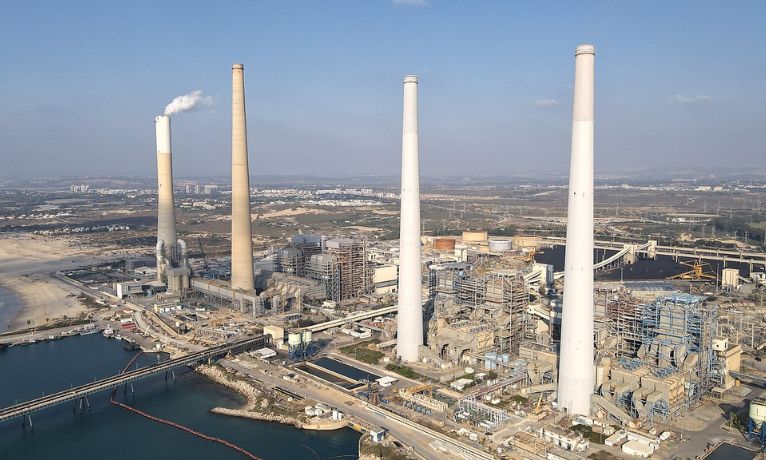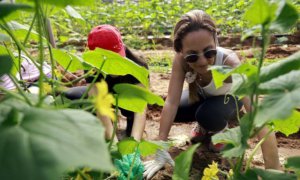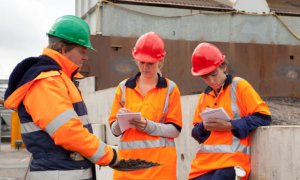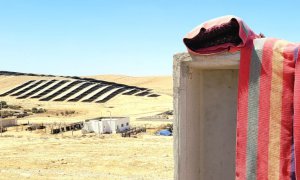הסבה הוגנת לכלכלה דלת פחמן

הסבה הוגנת לכלכלה דלת פחמן כולל תוכניות הסבה מיטיבות לפורשי תעשיות מזהמות. החשיבות של שיקולים סביבתיים הולכת וגוברת ברחבי העולם, בין השאר כתוצאה משינויי האקלים והכרה במגבלות המשאבים הטבעיים. בשנים האחרונות מתרחש מעבר הדרגתי לכלכלה ירוקה, אשר תלויה פחות בדלקי מאובנים, מגמה זו צפויה להתגבר בעולם ובישראל באופן אקספוננציאלי.
חרף הקונצנזוס המדעי לפיו ישנו צורך סביבתי דחוף במעבר לכלכלה דלת-פחמן, וההסכמה הגורפת בקרב המוסדות הבינלאומיים המובילים (בהם האו"ם, ה-OECD, האיחוד האירופי וקרן המטבע העולמי) כי יש במעבר כזה כדי לתרום לצמיחה כלכלית בטווח הבינוני והארוך, בטווח הקצר לתהליך מעבר זה פוטנציאל פגיעה משמעותי באוכלוסיות שונות. בפרט, בעובדי תעשיות מזהמות והעובדים המשניים התומכים בתעשיות אלו, אשר נוטים להשתייך לאוכלוסיות מוחלשות מבחינה סוציו-אקונומית ולכן צפויים, בטווח הקצר, נוכח הפגיעה בפרנסתם , להיפגע מהמעבר לכלכלה דלת פחמן.
יוזמה זאת עוסקת באוכלוסיות אלו בעת תהליך המעבר, ומטרתה לייצר ולמסד תהליך מעבר הוגן לכלכלה דלת פחמן, אשר מציב את רווחת העובדים לצד רווחה סביבתית.
תכניות הפועלות תחת עקרון המעבר הצודק נדרשות להתמקד בשלושה תחומים:
1. תמיכה בהכנסה בעת המעבר
2. מתן כישורים וכלים מקצועיים וקהילתיים להסבה מוצלחת
3. והבטחת פנסיה לעובדים בענפים המזהמים גם לאחר צמצום וסגירת הענף.
חציה הראשון של יוזמת זאת מתמקד במעטפת הקהילתית – חברתית בעת המעבר, בדגש על תהליך ההסבה ורכישת הכישורים החדשים לטובת הכשרה מוצלחת. חציה השני, אשר נכתב ע"י קליניקת הכנסת בפקולטה למשפטים, אוניברסיטת תל אביב, עוסק בתמיכה בהכנסה, הבטחת פנסיה ויצירת מעטפת כלכלית תומכת.
הנחות המוצא בבסיס היוזמה הן שנדרשים מנגנוני פיצוי כלכליים, חברתיים וקהילתיים, דהיינו לא דיי במנגנוני פיצוי כלכליים, יש לפעול לכינון מערכת תעסוקתית קהילתית, אשר תפעל להבטחת רווחת העובדים והקהילות בהם הם חיים. הנחת מוצא נוספת היא שלוח הזמנים ומספר העובדים העתידים לאבד את פרנסתם לוטה בערפל, עקב העדר נתונים בישראל, ולכן עלינו לפעול בתנאי אי וודאות ותחת No regrets policy, משמע מדיניות אשר גם אם לא תביא לתועלות הצפויות, אין בה בכדי לגרום נזק והסיכונים, אם קיימים, מינוריים.
בחזוננו אנו רואים יוזמה אשר מתווה את הדרך להגשמה מלאה של אמרת "Leave no one behind" אשר נמצאת בלב תפיסת המעבר הצודק. מטרתנו, בשלב זה, אינה בהכרח לייצר מנגנונים קונקרטיים להסבה הוגנת, אלא לסמן תהליך עבודה רצוי לטווח הזמן הקרוב, אשר משתף ממשלה, עובדים, גורמים סביבתיים וארגוני עובדים, לטובת העובדים והסביבה. אך לצד זאת, יוזמה זו בהחלט מציעה צעדים קונקרטיים למימוש חזוננו. ככלל, מטרת היוזמה להביא למצב בו אף אדם לא יצטרך יותר לבחור בין בריאותו לפרנסתו ולחזק את החיבור בין התנועה הסביבתית לכלכלה חברתית.
שותפים לגיבוש היוזמה:
ד"ר דפנה אבירם ניצן, איתמר אבנרי, הדר אביאל , דיאנה בארון, שילה ביתנון, עדן בז'רנו, חמוטל בלנק, ד"ר עמית בן צור, מתן פיינזילבר, יערה פרץ, מיכל רויטמן, ד"ר הילה שינוק, ראומה שלזינגר, ד"ר ליהי שחר ברמן , רומי שפירא, ליטל כהן ביטון, מקס גרובמן וד"ר נוגה דגן בוזגלו.
מוביל.ת היוזמה:
מיטל פלג מזרחי, meitalpeleg@gmail.com
Fair transition to a low-carbon economy
Beneficial transition programs for former employees in polluting industries.
There is a clear scientific consensus on the urgent environmental need for a transition to a low-carbon economy. Furthermore, the leading international institutions (including the United Nations, the OECD, the European Union and the World Monetary Fund) agree across-the-board that such a transition has the potential to contribute to economic growth in the medium and long term.
However, in the short term, this transition process has the potential to significantly harm different populations. Workers in polluting industries and second-tier workers who support these industries are particularly at risk.
These workers tend to belong to socioeconomically disadvantaged populations and are therefore expected, in the short term, in view of the damage to their livelihood, to be harmed by the transition to a low-carbon economy. The goal of this initiative is to create and establish a fair transition process to a low-carbon economy, which places the well-being of workers alongside environmental well-being.
Programs operating under the principle of just transition must focus on three areas:
Income support during the transition
Providing occupational and community skills and tools for successful transition
Guaranteeing a pension for workers in polluting industries even after the industry’s downsizing and closure
The first phase of this initiative focuses on the community-social sphere during the transition, with an emphasis on the transition process and the acquisition of the new skills for successful training. The second phase, which was written by the Knesset Clinic at the Faculty of Law, Tel Aviv University, deals with income support, guaranteeing a pension and creating a supportive financial framework.
We envision an initiative that paves the way to truly fulfilling the saying "Leave no one behind," which is at the heart of the concept of a just transition. In general, the goal of the initiative is to bring about a situation where no one will have to choose between their health and their livelihood, and to strengthen the connection between the environmental movement and social economy.
Partners in formulating the initiative:
Dr. Dafna Aviram Nitzan, Itamar Avneri, Hadar Aviel, Diana Baron, Sheila Beitanon, Eden Begerano, Hamotel Blank, Dr. Amit Ben Tzur, Matan Feinzilber, Ya’ara Peretz, Michal Roitman, Dr. Hila Shinok, Reuma Schlesinger, Dr. Lihi Shahar Berman, Romi Shapira, Lital Cohen Biton, Max Grubman and Dr. Noga Dagan Buzaglo.
Initiative Leader:
Meital Peleg Mizrahi, meitalpeleg@gmail.com
לכל היוזמותעוד ממעבר צודק





